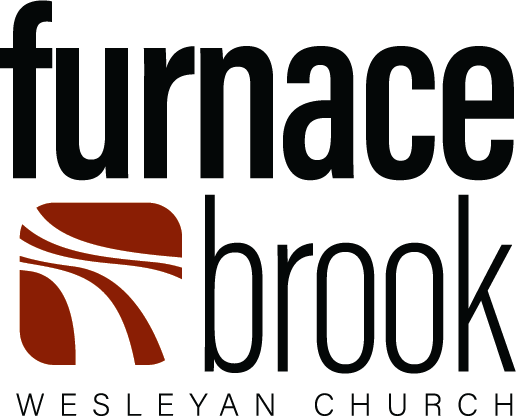 Last night I fell asleep praying desperately. Praying for God to give me words to say. Praying for protection from attacks. Praying for people I know are hurting more than I am. That's because God is doing something in our church and in my ministry that is stretching us greatly. We welcomed it, but we could be tempted to regret that. It's driven me back to one of my touchstone events in scripture, the showdown between Elijah and the Prophets of Baal on Mt. Carmel. I like to think of it as history's most violent barbecue. Read 1 Kings 18 if you don't know what I'm talking about. Not only is it a riveting story (why hasn't Hollywood already made a film of it?) but it is full of wisdom for leaders and those they are leading. A leader must be prepared to provoke a crisis of decisionIsrael had been unfaithful to God and had made room for odious idols in their midst. So the land was suffering from drought, languishing and in a death spiral. Some might have told Elijah to take a more indirect and gradual approach. But it wasn't only the urgency of the situation that prompted Elijah to provoke a crisis of decision. The gradual approach at its best is only moderately successful, but it's much less risky for the leader. The stakes were so high that Elijah wanted to succeed more than he wanted to be safe. The leader must behave publicly and transparentlyElijah conducted everything about the encounter in full view of the public. Part of Elijah's reason for doing this was to make sure that God received all the glory for what it was Elijah expected God to do. He didn't want anyone to be able to say that Elijah's behind-the-scenes cleverness could account for what happened. It takes humility and confidence in God for the leader to behave publicly and transparently and that alone is enough reason to insist that he does so. There is a time for drenching the altar.When Elijah had the water poured over the altar he was upping the ante. He was making sure that when the fire came down from heaven it was going to be the most dramatic event it could be, something that only the divine power of God could account for. David was "drenching the altar" when he politely declined the use of Saul's armor to go out and fight Goliath. Gideon was "drenching the altar" when he pared down his fighting force to a scant crew before attacking the large army of invaders. There are times when the leader, being confident of what God is going to do, allows God to do it on dramatic terms. Some opponents have to be defeated, but some opponents need the opportunity to become allies.Elijah knew that the prophets of Baal could not survive this showdown, but he wanted to leave room for the faithless people of Israel to come around and redeem themselves. We will all be tempted to follow Jonah's example, instead. He was tasked with calling Nineveh to repentance but when they repented and God relented from his plan to destroy, Jonah was put out. He wanted to prevail over his opponents, not win them over. One opponent persuaded is worth more to the mission than ten opponents defeated. The leader can not demand of others a faith he does not demonstrate himself.Elijah bought a one-way ticket to this showdown. He did not have a fallback plan, a bodyguard, or a getaway car with the engine running. He took one of the most breathtaking leaps of faith imaginable. And it gave him the right to ask the people to follow him in faith. Are there any other leadership lessons you would draw from the events on Mt. Carmel? Share them in the comments.
0 Comments
 We all feel drawn to churches that are positive, upbeat places with high morale. Those are the successful churches, right? So it's hard to know how to take the Teacher in Ecclesiastes when he says "Frustration is better than laughter, because a sad face is good for the heart." (7:3) Following are 5 reasons to be concerned about insisting on high morale. High morale can come at a high price.When morale is low and there is nothing in the circumstances of the church to lift the congregation's spirits, the leadership of the church feels it is up to them to boost morale on their own. But the same downward pressure affecting the rest of the church applies to the leadership of the church and even more so. For the leadership of the church to boost everyone else's spirits is like trying to lift off the ground the pallet you're standing on. Leaders in this situation are more likely to burn themselves out than to make a big and lasting difference in the climate of their churches. High morale can strike a jarring noteYou're visiting a shabby church. The items on the bulletin board were outdated a year ago. The people who are there showed up at the last minute and look as if they're ready to leave at the mere mention of a benediction. And then from the pulpit you hear the preacher do his best rah-rah performance. "Amazing things," it would seem, are happening throughout the church. If the circumstances of the church don't match the signals the church is giving, the incongruity can seem weird and off-putting. High morale can mess up the story you're trying to tell.Church life at many churches can feel like a movie being filmed almost entirely in the valley, but saddled with an exclusively mountain top sort of soundtrack. For God's best story to unfold in your church in a way that people can understand and experience while it's happening, you need to be prepared for the soundtrack at times to dip into the minor keys. High morale can be exhausting.Even when it happens naturally and organically, the experience of high morale uses the sort of muscles a church didn't know it had. To sustain that feeling indefinitely would probably be unwise even were it possible. If you're feeling tired of the incessant smiling, cut yourself some slack. Pause to breath and reflect. Be sober. The smile will be where you left it when you're ready to resume it. High morale is an "all these things" itemIn the Sermon on the Mount Jesus tells his followers not to worry about the things they're prone to worry about because God knows they need them. Instead, he says, make God's business (His kingdom and His righteousness) your concern, and he will make your business His concern. He will see to it that "all these things are added unto you." Our job is to lift Jesus high, not our morale. The higher Jesus gets elevated the higher (and more easily) our morale will swell in the wake of our ascending and triumphant Savior.
|
Furnace Brook Wesleyan Church Blog
|

 RSS Feed
RSS Feed